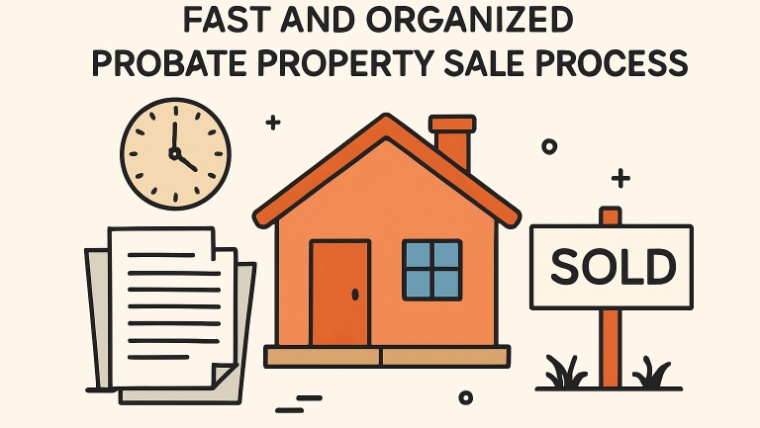
Moving house seems pretty straightforward when you first start planning it. Pack your belongings, hire some help, and move everything to the new place. How hard could it be? Turns out there are tons of surprises waiting that nobody ever mentions in moving guides or advice articles. These hidden challenges catch most families completely off guard.
The problem is that people who have moved before either forget about the rough parts or don’t want to scare you with horror stories. Moving companies focus on the logistics but skip the emotional and practical realities. This leaves families unprepared for challenges that could be handled much better with some advance warning.
Table of Contents
The Emotional Rollercoaster Nobody Mentions
Moving affects your emotions in ways that surprise most people. Even when the move is exciting and voluntary, there’s often unexpected sadness about leaving familiar places behind. Kids might have meltdowns about leaving their rooms, even if the new house is bigger and better.
Adults also struggle with emotions they didn’t expect. Packing up personal belongings can bring back memories that trigger strong feelings. Finding old photos, letters, or items from deceased relatives can turn a routine packing session into an emotional experience that derails the whole day.
Many professional movers singapore encounter families dealing with these emotional surprises during what should be a straightforward relocation process. The stress of coordinating logistics while processing feelings about leaving creates a perfect storm that catches people unprepared.
The new house might not feel right at first, even when everything about it is objectively better than the old place. This adjustment period can last weeks or months, especially for children who take longer to adapt to new environments. Many families feel guilty about not being immediately happy in their new home.
Relationships also get strained during moves in ways that surprise couples and families. The stress of coordinating schedules, making decisions under pressure, and dealing with problems together can reveal relationship dynamics that weren’t obvious during normal life.
Friends and extended family might react differently than expected to the move. Some people become distant when physical distance increases, while others might express hurt feelings about not being consulted about the decision. These relationship changes add emotional complexity to what should be a practical process.
The Financial Surprises That Hurt
Moving costs way more than most people budget for, and the extra expenses come from places nobody warns you about. Moving companies charge for services that families assume are included in the base price. Extra fees for stairs, long carries, or oversized items can double the final bill.
Utility deposits and connection fees add up quickly when setting up services at the new house. Some utility companies require significant deposits for new customers, especially if credit checks don’t meet their standards. Internet installation often involves contracts and equipment fees that weren’t expected.
The old house might need more cleaning and repairs than anticipated to get security deposits back or satisfy buyer requirements. Professional cleaning services, paint touch-ups, and minor repairs can cost hundreds of dollars that weren’t in the original budget.
Storage costs become necessary when moving dates don’t align perfectly or when the new place isn’t ready yet. Monthly storage fees plus the cost of multiple moves add significant expense to relocations that were supposed to be simple.
Time off work costs money too, either through lost wages or used vacation days. Many people underestimate how much time moving actually requires and end up taking more unpaid time off than planned.
Emergency expenses also pop up frequently during moves. Vehicle problems, weather delays, or damaged items often require immediate solutions that cost more than planned alternatives would have.
The Timeline Reality Check
Everything takes longer than expected when moving, and these delays create cascading problems that affect other plans. Packing seems endless because every room contains more items than people remember owning. Sorting through belongings to decide what to keep, donate, or throw away becomes time-consuming and emotionally draining.
Cleaning both houses takes much longer than anticipated. The old house needs deep cleaning in areas that were hidden behind furniture and belongings. The new house often needs cleaning too, even when it’s supposed to be move-in ready.
Administrative tasks pile up during moves in ways that surprise busy families. Address changes need to be made with dozens of organizations, from banks and insurance companies to subscription services and loyalty programs. Each change takes time and often requires phone calls or paperwork.
School transfers and enrollment processes take weeks to complete properly. Getting transcripts, immunization records, and other documentation transferred between school districts involves multiple appointments and waiting periods that delay children’s enrollment.
Home repairs and improvements in the new house often take longer than expected and might need to be completed before moving in. What seems a simple project becomes complicated when contractors find unexpected problems or when permits are required.
Settling into routines in the new location takes much longer than people expect. Learning new routes to work, school, and essential services creates daily inefficiencies for weeks or months after moving.
The Practical Problems Nobody Discusses
Boxes get lost or damaged during moves more often than people realize. Important documents, valuable items, and sentimental belongings sometimes disappear during the chaos of packing and unpacking. This happens even with professional movers and careful labeling.
Key and access issues create major headaches during moving day. Old house keys might not work properly when needed for final access. New house keys might not be available when expected, leaving families locked out with all their belongings sitting in trucks.
Parking problems at both locations can derail carefully planned moving schedules. Moving trucks need specific types of parking spaces that might not be available when needed. Permits that were supposed to be arranged might not be valid or properly posted.
Utilities might not work as expected in the new house. Power, water, gas, or internet services that were scheduled to be connected might have problems that take days or weeks to resolve. These issues make the new house uncomfortable or unusable during critical adjustment periods.
Storage space in the new house rarely matches what people expect based on their quick visits during house hunting. Furniture that fit perfectly in the old house might not work in the new layout. Storage that seemed adequate during empty house tours becomes insufficient when filled with a family’s belongings.
Neighborhood dynamics become apparent only after moving in full time. Noise levels, traffic patterns, and neighbor behaviors that weren’t obvious during brief visits can significantly affect quality of life in ways that surprise new residents.
The Family Adjustment Challenges
Children often struggle with moves in ways that parents don’t anticipate. Even excited kids might have trouble sleeping, eating, or concentrating during the transition period. Academic performance sometimes suffers temporarily as children adjust to new schools and routines.
Pets also have adjustment difficulties that create additional stress for families already dealing with their own challenges. Animals might refuse to eat, hide, or display behavioral problems in the new environment. Veterinary records and medication transfers add to the administrative burden of moving.
Social connections take much longer to rebuild than people expect. Adults might feel isolated without their usual social networks, especially if the move involves significant distance. Children face similar challenges in making new friends and finding their place in different social environments.
Daily routines get disrupted for much longer than anticipated. Simple tasks that were automatic in the old location require conscious effort and planning in the new place. This mental fatigue affects everyone in the family and can last for months.
Extended family relationships might become more complicated when geographical distance increases. Grandparents, siblings, and close friends might feel left behind or might have difficulty maintaining the same level of connection after the move.
Making Peace with Moving Reality
Understanding these hidden challenges doesn’t mean moving is impossible or always terrible. It just means families can prepare better for the reality of relocating instead of being blindsided by predictable problems.
Building extra time and budget cushions into moving plans helps absorb the inevitable surprises without derailing everything else. Expecting emotional ups and downs helps families support each other through difficult moments instead of feeling guilty about normal adjustment reactions.
The families who handle moves most successfully are usually the ones who go in with realistic expectations and plenty of backup plans. Moving will probably be harder and take longer than expected, but being prepared for that reality makes everything more manageable.


